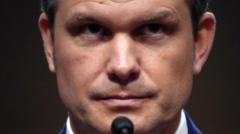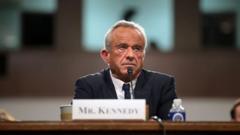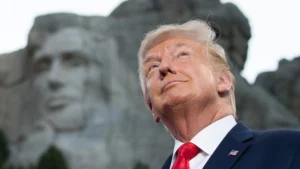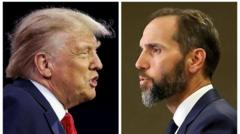During the nearly five-hour long scrutiny, Hegseth defended his views and tackled allegations regarding his character, emphasizing a vision for a formidable military while grappling with accusations from both his past and fellow senators. Here are the key points that emerged from the hearing.
**Pete Hegseth's Senate Hearing: Key Insights and Controversies**

**Pete Hegseth's Senate Hearing: Key Insights and Controversies**
Pete Hegseth, Donald Trump's nominee for Defense Secretary, faced a rigorous Senate confirmation hearing that revealed significant partisan divides and raised pressing questions about his qualifications.
Hegseth's testimony opened with a commitment to a robust military ethos, insisting that core principles like lethality and readiness should guide the Pentagon's agenda. He was adamant about opposing diversity quotas, arguing that they detract from military efficiency and morale.
However, his past remarks on women in combat roles sparked intense debate, with Democrats pressing him about previous statements suggesting that women shouldn't serve in combat. Despite their challenges, Republican senators lauded Hegseth for his outsider perspective, indicating that his lack of traditional political experience could be a boon for the military.
Despite his academic accolades and military credentials, skepticism arose regarding Hegseth's preparedness for the comprehensive responsibilities of the Defense Department, particularly following financial controversies in his previous leadership of veteran organizations.
Moreover, the hearing illuminated the limited focus on strategic military issues, with many experts noting the absence of discussions about current global tensions. Instead, the dialogue often veered towards personal accusations and character assessments.
As allegations of sexual misconduct resurfaced, Hegseth categorically denied wrongdoing but described the claims as part of a "coordinated smear campaign." This aspect of his hearing underscored the intense scrutiny that accompanies high-profile nominations in contemporary politics.
While the outcome of Hegseth's nomination hangs in the balance, the hearing highlighted significant divisions across party lines and the challenges of leading the Defense Department amid political turbulence.
However, his past remarks on women in combat roles sparked intense debate, with Democrats pressing him about previous statements suggesting that women shouldn't serve in combat. Despite their challenges, Republican senators lauded Hegseth for his outsider perspective, indicating that his lack of traditional political experience could be a boon for the military.
Despite his academic accolades and military credentials, skepticism arose regarding Hegseth's preparedness for the comprehensive responsibilities of the Defense Department, particularly following financial controversies in his previous leadership of veteran organizations.
Moreover, the hearing illuminated the limited focus on strategic military issues, with many experts noting the absence of discussions about current global tensions. Instead, the dialogue often veered towards personal accusations and character assessments.
As allegations of sexual misconduct resurfaced, Hegseth categorically denied wrongdoing but described the claims as part of a "coordinated smear campaign." This aspect of his hearing underscored the intense scrutiny that accompanies high-profile nominations in contemporary politics.
While the outcome of Hegseth's nomination hangs in the balance, the hearing highlighted significant divisions across party lines and the challenges of leading the Defense Department amid political turbulence.






















